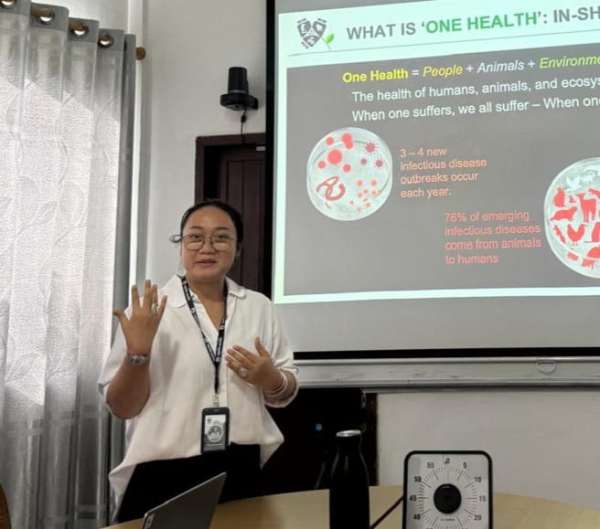KPL
A national movement is gaining momentum in Laos to reduce the consumption of wild animals, with health experts and conservationists highlighting the dangers it poses to public health and biodiversity.

(KPL) A national movement is gaining momentum in Laos to reduce the consumption of wild animals, with health experts and conservationists highlighting the dangers it poses to public health and biodiversity.
For generations, wildlife has been part of traditional diets and beliefs in Laos. However, experts warn that such practices now risk triggering disease outbreaks, harming ecosystems, and threatening long-term food security.
“Many people’s lives are closely connected to nature,” said Ms. Akchousanh Rasphone, Conservation Director of WWF-Laos. “But while small-scale hunting for family use has long existed, commercial wildlife trade benefits few and harms many upsetting ecosystems and local livelihoods.”
Recent research from the Lao-Oxford-Mahosot Hospital-Wellcome Trust Research Unit (LOMWRU) and the Department of Microbiology at Mahosot Hospital has found that wild animals can host dangerous zoonotic diseases such as coronaviruses, rabies, and influenza.

Health risks increase when wild meat is improperly handled or cooked. Outbreaks of diseases like African swine fever and anthrax have also been observed, affecting both domestic and wild animal populations. Neighboring Cambodia has even reported rabies cases linked to domesticated wolves.
Despite these warnings, wild meat remains popular in some areas, often seen as a health tonic. “It’s a personal belief,” said a Mahosot Hospital researcher, “but evidence shows the health dangers far outweigh any claimed benefits.”
Encouragingly, communities are beginning to embrace change. Through education campaigns and outreach efforts led by WWF and local partners, more Lao citizens are choosing safer, sustainable food alternatives.
“By choosing not to consume wildlife,” Ms. Akchousanh added, “people are protecting their own health and helping restore balance in nature—an essential step toward sustainable development.”
The movement represents a growing shift toward a healthier, safer, and more resilient future for all Lao communities.
#MediaForOneHealth
KPL